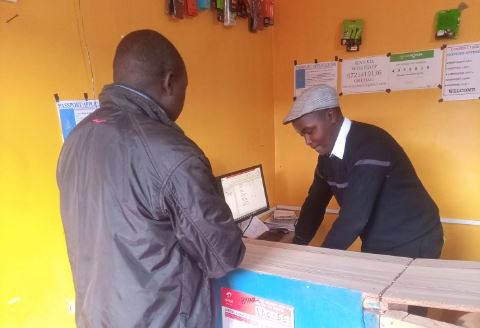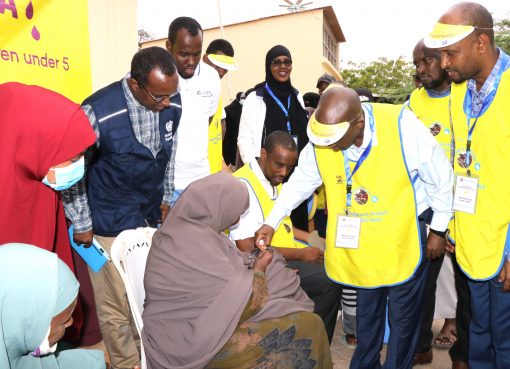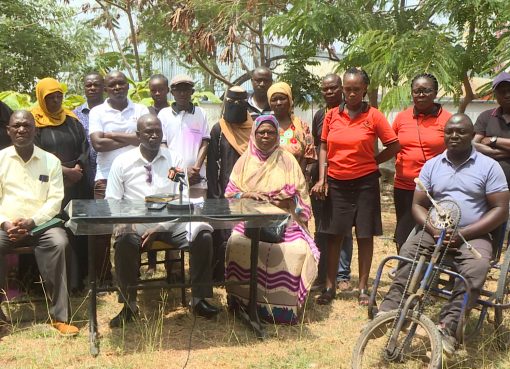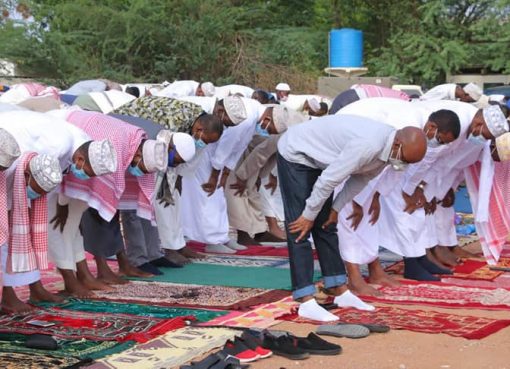Every year the government offers internship opportunities to thousands of youth who have graduated from various institutions to expose them to the workplace in a bid to gain hands-on experience.
Hillary Kipkosgei Ruto, who graduated in 2022 from Africa Nazarene University, where he trained as a teacher, got such an opportunity in a school in the neighbouring Uasin Gishu County in 2023.
While many of the youth would indulge using the cash either for entertainment or trending fashion, the 25-year-old youth from Kapteren village in Kamariny ward in Elgeyo Marakwet county knew he had to save every coin to enable him to start his own business.
“I have always loved to do business because I know with discipline business pays and also it gives one the freedom as I am my own boss,” said Ruto.
Ruto took advantage of the fact that he was working in a rural area and therefore there were fewer expenses, as both food and accommodation are affordable and saved every coin he could.
“By the time I was done with the internship, I had saved some money, which I planned to use to start a business but by then I was not sure which business to start,” he said.
With the cash paid during the internship, Ruto is advising the youth to save the money, as this is a time when they don’t have many responsibilities, saying the money will go a long way in helping them start a venture.
Ruto says that as he was thinking about what business to start, he had noticed that there was an upsurge in the number of people requiring online services in his home area.
He said while there are two other cyber cafes at the Kapteren trading centre, these are not enough considering that the number of people seeking online services is increasing by the day as most businesses are transacted online.
He says with the world going digital and all services, including government, being transacted digitally, Ruto saw a business opportunity.
It is said that a good business idea is one that seeks to solve a problem within a given society and for Ruto, he had just found a problem affecting the residents.
“People require documents like the good conduct certificate and KRA clearance certificates,” he said, adding that “many people, especially those who are a bit elderly, require the help of those who are conversant with the internet.”
He had just found out what he needed to do, not only to serve the residents but also to make money and become self-employed.
Ruto says his savings came in handy as he bought a secondhand computer, printer and laminating machine, which cost him Sh60,000 and rented a small room at the Kapteren trading centre, where he started off his business in January 2024.
Noting that there are many businesses which go on in various colleges, Ruto advises youth to observe and, when free, give a hand, which will not only introduce them to the world of business but also give them some experience, something that they can never get in class.
Ruto says while in college, during his free time, he used to visit one of the cyber cafés and assist the owner in photocopying and printing documents, which helped him when he started his business.
One year down the line, he says his business is doing fine and he is able to meet his expenses without relying on anyone, saying he makes more than Sh1,000 per day, with at times his earnings going up to Sh5,000 when the demand is high.
Ruto says despite the fact that there are few in the area, he is alive to the fact that the centre is growing and soon many others will open similar businesses.
“That is why I try to offer my customers quality service so that I build a strong customer base who will support my business when the competition becomes stiff,” he said.
He added that due to his services, he gets referrals from people he has served, saying word of mouth has so far been his most effective method of advertising his business.
Ruto says his major clients are mostly teachers, especially head teachers, when they have to upload student marks.
He says he exercises confidentiality of his clients’ data, which is crucial given that he handles a lot of data.
He calls on youth to be patient, saying one cannot start a business and it picks off immediately, saying they should not rush for money but first gain experience and the money will come later.
Ruto says he is planning to expand his business; thus, he is continuing his saving culture to get more money to buy more equipment, saying the one computer is not enough to serve his growing number of customers.
He says one of the major challenges he is facing is the slow internet, which delays his customers and called on the government to extend internet services to the rural areas, saying with a faster internet, he will not only make more money but also save on the bundles, which he has to buy from the internet providers.
Electricity is also another challenge, saying during blackouts his business makes losses.
By Alice Wanjiru and Joan Jelimo





